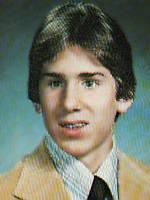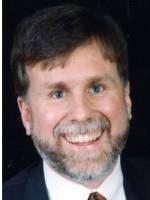

Paul W. Schroeder believes OACS was the first place he really had to survive and thrive in a "sighted" world.
Four years after graduating from OACS in 1980, Paul graduated cum laude with a degree in International Studies and Political Science from The American University, in Washington DC.
Paul considers himself fortunate to have a successful career focused on advocacy and policy development, especially related to technology access for people with disabilities.
He began this work in the mid-1980s in an advocacy office for persons with disabilities created by the Governor of Ohio. During this time he helped lead efforts to educate Ohioans regarding the need for reform in healthcare and long-term care, and he also led grassroots efforts to secure Ohio Congressional support for enactment of the Americans with Disabilities Act (ADA) of 1990.
Later, with the American Council of the Blind in Washington DC, Paul led efforts to ensure that ADA regulations reflected the interests of people with vision loss, including requirements for detectable warnings along the edges of transit platforms and strong requirements for accessible (Braille and large print) signage. He also led efforts to negotiate precedent-setting legislative language that would eventually be enacted in 1996 to ensure that telecommunications equipment and services would be made accessible to people with disabilities.
During the late 90s, working with the American Foundation for the Blind (AFB), Paul led efforts to persuade Microsoft to improve the accessibility of its technology for people with disabilities. Since that time, still with AFB, he has returned to Washington DC and worked to pass legislation that requires publishers to provide textbooks in electronic files that can be converted into formats usable by elementary and high school students with vision loss.
Paul also led efforts to more than double federal funding for services to assist older persons experiencing vision loss. Recently, he worked with a coalition of disability organizations to enact comprehensive legislation requiring advanced Internet-connected communications technologies and television equipment and programs to be accessible for people with disabilities. On October 8, 2010 Paul was present when President Obama signed the law, known as the Twenty-first Century Communications and Video Accessibility Act of 2010.
Paul is a person with a lifelong, visible disability - blindness. This did not stop him from holding a job, raising children, owning a home and other manifestations of the "American Dream".
Paul believes living successfully with a disability is not uncommon and not, in itself, heroic. He has tried to "live" with a disability, succumbing neither to pathos nor obsession, but rather pursuing interests, parenting children, being a partner with his wife, and engaging in civic activities.
